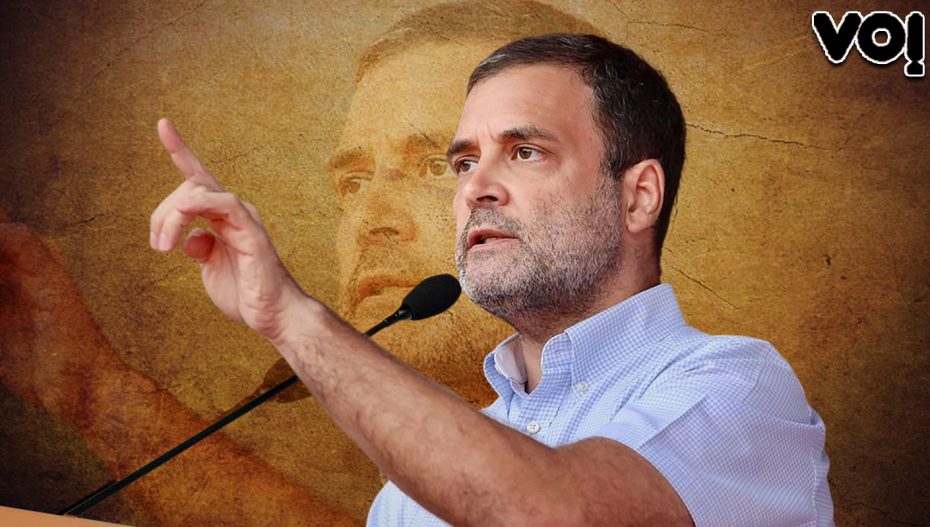The Congress’s three-day “chintin shivir” may have addressed itself to aspects concerning structural reforms within the party, effective communications management and connecting with people—hackneyed ideas which were looked into in the past by various party panels —but Rahul Gandhi’s assertion that the regional parties were not good enough to confront the BJP is far removed from the ground realities. Indeed, the declaration is rich coming from the putative president whose balance sheet shows more electoral defeats than victories in the recent past. Rahul has scarcely led the Congress to a memorable win. What does his claim augur for the Congress’s future in 2024?
First, Rahul’s statement could rile the handful of the Congress’s present allies and deter the prospective ones, if indeed there are parties that would still like to do business with it. The Congress’s present partners include the DMK, the Shiv Sena, the NCP, the Jharkhand Mukti Morcha and the RJD. It is a constituent of the governments in Tamil Nadu, Maharashtra and Jharkhand where the DMK, the Sena-NCP and the JMM are senior partners by a long shot and part of the RJD-helmed Opposition in Bihar.
As a junior member, the Congress is hardly placed to dispense official patronage in these states to its members and supporters. If anything, the Congress depends on the DMK, Sena, JMM and RJD to secure for itself an odd seat or two in the Rajya Sabha and the legislative council (in states that have a bicameral legislature) and tickets for the Lok Sabha and assembly polls. Of the 53 seats it picked up in the 2019 Lok Sabha election, Kerala and Punjab aside, the DMK-led Tamil Nadu coalition contributed significantly to the Congress’s kitty. Rahul evidently needs a reality check.
Second, it’s all well to position the Congress at the steering wheel of an anti-BJP coalition as India’s Grand Old Party, but can the party keep thriving on a cachet of history and grandeur to assert its supremacy that exists in the imagination of a few leaders? Consider its recent electoral record. It rules only two states, Chhattisgarh and Rajasthan, independently. In 2018, after wresting Madhya Pradesh from the BJP, it forsook the state in barely a year to the predecessor and was sent to the Opposition. The party will be fortunate if it wins one of the states going to polls before the big battle of 2024 if it has to retain its allies and attract new partners. The Trinamool Congress Party for one publicly emphasised that even if a front against the BJP were to materialise, the Congress would not be the linchpin. The TMC is the BJP’s principal opponent in West Bengal and won the 2021 assembly elections after putting up a fight to the bitter end.
Rahul placed ideology at the centre of the Opposition’s fight against the BJP and stressed that the Congress was the only entity which possessed the ideological counterbalance to repulse the BJP. It is true that in the spectrum of regional forces, bar the RJD and the Samajwadi Party, the others fraternised with the BJP, as electoral allies and partners in governments or as covert supporters. The Biju Janata Dal, Telangana Rashtra Samithi and YS Jagan Mohan Reddy’s YSR Congress Party fall in the second slot. But to say that the BJP’s erstwhile and existing friends are bereft of an ideology is off the mark.
The Congress itself is yet to resolve its internal dilemmas on using religion in its discourse and campaigns. Its quandary was apparent at the Udaipur meet. It is perpetually beset with a problem of projecting a clear economic outlook because it is undecided on whether it to continue endorsing the economic reforms authored by PV Narasimha Rao and Manmohan Singh or hark back to an inchoate version of Socialism, based largely on populism. How then could Rahul insinuate that a state party lacked the ideological ballast to challenge the BJP? If the TMC was not equipped with the ideological armoury to fight the BJP and failed to enunciate its world view lucidly, would West Bengal’s minorities as well as Hindus for whom the BJP was an anathema rooted for Mamata Banerjee? And this after the Congress and the Left with the nascent Indian Secular Front worked hard to undermine her support?
The BJP has recognised the ground truths more astutely than the Congress. It has begun to perceive the Aam Admi Party, for example, as a tougher adversary in Himachal Pradesh after the Aap won neighbouring Punjab and is mounting an assault on Arvind Kejriwal and company in Himachal that will vote with Gujarat in November this year. In Telangana, the BJP is working on a strategy to take on the TRS as the Congress is relegated to the margins. In West Bengal, which the BJP lost badly to the TMC, it persists hard to make a recovery. In short, the BJP is finally unprepared to acknowledge the Congress as the sole challenge because to it, the regional entities appear set to make a robust fight for the next general elections.
But the message has not got across to Rahul Gandhi.
Read Also: Finally, Rahul Gandhi Admits Congress Has Lost Its Mass Connect













